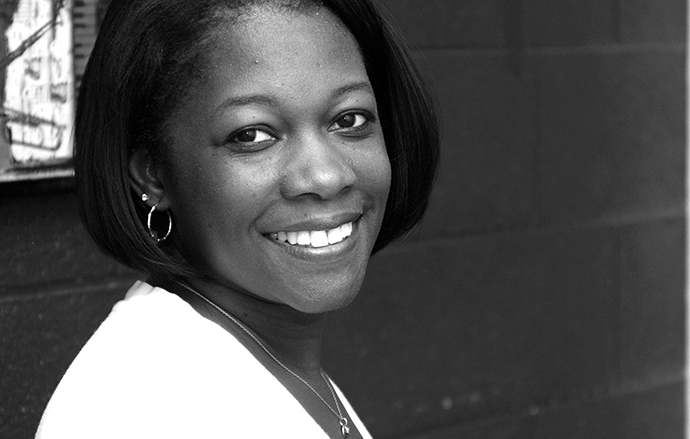Q&A with 2015 JBF Food Conference Speaker and Pastry Chef Erika Dupree Cline
JBF Editors
JBF EditorsSeptember 18, 2015

For more than 20 years, celebrated pastry chef Erika Cline has been crafting some of the country’s most scrumptious desserts and chocolates. In 2008 she created a nonprofit organization called Culinary Wonders USA, whose mission is to introduce, share, and cultivate the culinary arts with minorities. As its president, Cline helps to lead CWUSA’s mentoring, scholarship, and volunteering efforts. We're thrilled that Erika will be joining us as a speaker at our upcoming JBF Food Conference and preparing the dessert for the JBF Leadership Awards. Read on to learn about her thoughts on diversity in culinary education, her latest pastry passion, and more.
--
JBF: You’ve worked extensively with Culinary Wonders USA and the Minority Chef Summit. Please tell us a bit more about these organizations and what they mean to you.
Erika Dupree Cline: When I was starting CWUSA, I called minority chefs and asked if I could put them on a website that would help others learn about minority chefs in America, essentially creating the first minority-chef information booth. After that my new board members and I planned "A Night On the Hill," a historical dinner at Casa Marina in Jacksonville Beach, Florida. Within three years we raised over $60,000 from these dinners; the funds helped a community center founded by Rhoda L. Martin, a free, educated black woman who, from her home, taught children of all color to read. Then we started Minority Chef Summit, a three-day educational and fellowship-building conference. It was a struggle to produce each year, but I am so proud and grateful for what we have accomplished and how we made a difference in the each community we served.
JBF: What do you think the food/culinary system can do to democratize access to a culinary education?
EDC: If the cost of culinary education is lowered, it will make it more accessible. Culinary educators need to be more proactive by offering global scholarships to students or contributing more to schools so that expenses are lowered. It's also important to standardize what’s taught in schools and make it accessible through internet for all to use.
JBF: How would this impact the restaurant industry?
EDC: This would lead to a larger, more knowledgeable, and more talented labor force for the culinary industry, which may lead to a decrease in training costs, more creativity, and improved production within establishments.
JBF: How does culinary education need to change to support a more diverse student body?
EDC: I believe that culinary programs need to introduce more cultural cuisine courses in response to the diverse students who are enrolling at culinary schools. I have lived in the Caribbean for the last three and a half years; the culinary schools here teach the basics and mother sauces, but they also are teaching the Caribbean cuisine from all of the islands, highlighting the similarities and differences.
JBF: How does empowering chefs affect the communities they come from and the communities they open their restaurants or businesses in?
EDC: It brings a sense of pride and unity to the community to see new and exciting projects. It inspires the young and old to dream for a better tomorrow. Opening restaurants in the community also helps create jobs and revenue.
JBF: What project(s) are you working on right now that you’re most excited about?
EDC: I just finished with Minority Chef Summit 2015 Haiti—there’s an amazing excitement around food and sustainability there. Now I’m opening my own bean-to-bar chocolate boutique and hands-on kitchen here in the British Virgin Islands, and I’m also working with the BVI Ministry of Tourism on the island’s Culinary Fete. I recently got married to a culinary school director and restaurant owner, so my hands are full of nothing but food.
JBF: What part of the 2015 JBF Food Conference are you most looking forward to?
EDC: I’m looking forward to making the dessert for the Leadership Awards dinner, of course, and also to being able to voice my opinion about how food makes a community. This is how I got into the industry in the first place, being able to touch people through food, which I did at an early age, thanks to my grandparents and mom. We lived on a farm, where we grew and produced everything that we cooked.
--
For more information about the 2015 JBF Food Conference, visit jbffoodconference.org or follow #JBFCONF2015 on Twitter.







